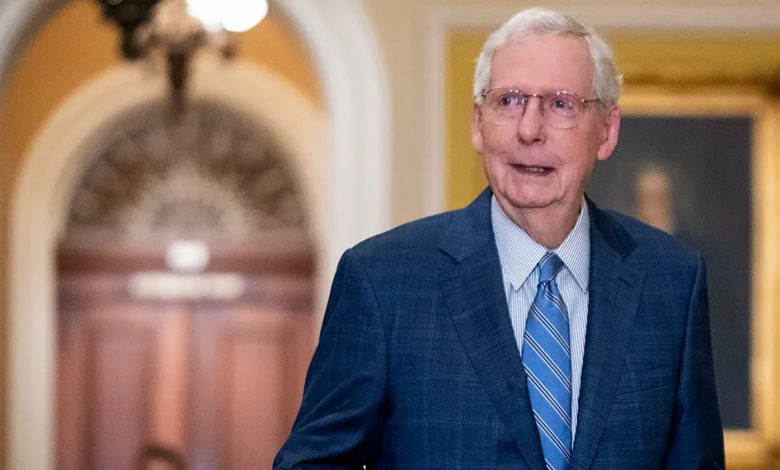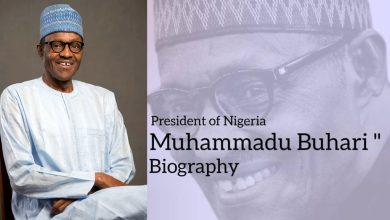Mitch Mcconnell Biography

Mitch Mcconnell Biography – Mitch McConnell was born on February 20, 1942, in Sheffield, Alabama, to a family with deep roots in the South. Raised in a working-class household, McConnell’s early life was shaped by a strong sense of discipline and an emphasis on education. His father, a former coal miner and the owner of a small grocery store, instilled in McConnell a commitment to hard work and the values of public service.
McConnell’s family moved to Louisville, Kentucky, when he was young, and it was there that he began to develop an interest in politics. He attended the University of Louisville, where he earned a Bachelor of Arts in Political Science. After completing his undergraduate degree, McConnell went on to study at the University of Kentucky College of Law, earning his Juris Doctor in 1967. His education laid the foundation for a career in both law and politics, with McConnell’s sharp legal mind becoming a defining characteristic of his approach to governance.
Table of Contents
ToggleEarly Political Career
McConnell’s political career began in earnest after he completed his legal studies. In 1968, he worked as a law clerk for Judge Henry W. Seay before starting his law practice. However, McConnell’s true calling was in politics, and 1967, he worked for the campaign of Republican Senator John Sherman Cooper. McConnell’s passion for public service was clear, and in 1977, he was appointed to the position of Jefferson County Judge/Executive, making him the first Republican to hold that office in a region long dominated by Democrats.
In 1984, McConnell made his first bid for the U.S. Senate, running against incumbent Democratic Senator Walter “Dee” Huddleston. While he faced an uphill battle, McConnell’s strategic focus on appealing to Kentucky’s conservative base and his well-executed campaign led to his victory. He became the U.S. Senator from Kentucky in 1985, marking the beginning of a long and influential career in Washington, D.C.
Rise to Senate Leadership
McConnell’s career in the Senate was marked by an increasingly prominent role in Republican leadership. After serving in various committees, McConnell was elected Senate Minority Leader in 2007. His tenure as Minority Leader was characterized by a steadfast commitment to opposing the policies of the Democratic majority, particularly under President Barack Obama. McConnell was instrumental in blocking major legislative initiatives like the Affordable Care Act and in shaping the Republican Party’s stance on issues like tax reform and judicial appointments.
In 2015, McConnell was elected Senate Majority Leader after Republicans regained control of the Senate. As Majority Leader, McConnell became a key player in shaping both domestic and foreign policy, leveraging his deep understanding of Senate rules and parliamentary procedure to navigate political gridlock and implement conservative priorities.
One of McConnell’s most notable accomplishments as Majority Leader was his role in confirming federal judges, including three Supreme Court justices: Neil Gorsuch, Brett Kavanaugh, and Amy Coney Barrett. These appointments have had a lasting impact on the judiciary, cementing McConnell’s legacy in shaping the federal courts for generations to come.
Leadership Style and Influence
McConnell is often described as a master of Senate procedure, with an unparalleled ability to navigate complex legislative challenges. His leadership style has been marked by pragmatism, strategic calculation, and an unrelenting commitment to his party’s conservative values. McConnell is known for his ability to bring together the often fractious Republican caucus, even in the face of intense ideological divisions.
While he has earned praise for his tactical acumen, McConnell’s leadership has also drawn significant criticism. His strategic obstructionism during President Obama’s administration, particularly about judicial nominations, earned him the moniker “The Grim Reaper” among Democrats. In addition, McConnell’s decision to block a hearing for President Obama’s Supreme Court nominee, Merrick Garland, in 2016, remains one of the most contentious moments of his career.
Despite the controversies, McConnell’s political longevity and influence cannot be denied. He is often seen as one of the most powerful figures in Washington, D.C., and has been a key architect of the Republican Party’s modern conservative agenda.
Read More – Diljit Dosanjh Biography
Personal Life
Mitch McConnell’s personal life has been marked by several significant events, including his marriage to Elaine Chao, a prominent political figure in her own right. McConnell and Chao, who served as Secretary of Transportation under President Donald Trump, were married in 1993. The couple has one adopted daughter, Elaine Chao, who is also involved in politics and public service.
McConnell has been open about the challenges he faced during his earlier years, including a battle with polio as a child, which left him with a permanent limp. Despite this challenge, McConnell has often cited his experience with polio as a formative event in his life, one that shaped his resilience and drive to succeed.
Net Worth and Business Ventures
Mitch McConnell’s net worth is estimated to be in the range of $30 million to $40 million, primarily accumulated through his long political career and various investments. McConnell has also benefited from his wife, Elaine Chao’s success and business ventures, including her involvement in the transportation sector. McConnell has investments in real estate, stocks, and other assets, which have contributed to his wealth over the years.
Though he has made millions through his public service career, McConnell’s wealth has been a topic of scrutiny, particularly due to his business dealings and the influence of corporate donors in his political campaigns.
Legacy and Impact
Mitch McConnell’s legacy is one of political strategy, persistence, and a deep influence on the direction of American politics. He is often credited with helping to shape the modern Republican Party and for his relentless focus on judicial appointments, which has had a lasting impact on the federal courts. His influence extends beyond legislation and into the broader fabric of American governance, where his ability to block or promote policies has made him a key figure in U.S. politics for decades.
Whether praised or criticized, Mitch McConnell’s impact on American politics is undeniable. As one of the longest-serving members of the Senate and a key figure in the Republican Party, McConnell’s name will undoubtedly be remembered in the annals of U.S. political history.
FAQ
1. Who is Mitch McConnell?
Mitch McConnell is the U.S. Senator from Kentucky and the longest-serving Republican Senate Leader. He has been a key figure in shaping American politics and policy for over three decades.
2. What is Mitch McConnell known for?
McConnell is known for his strategic approach to Senate leadership, particularly in blocking legislation, confirming conservative judges, and shaping the Republican Party’s political agenda.
3. How long has Mitch McConnell been in politics?
McConnell has served in the U.S. Senate since 1985 and became the Senate Majority Leader in 2015. He has been a key political figure for over 35 years.
4. What is Mitch McConnell’s educational background?
McConnell holds a Bachelor’s degree in Political Science from the University of Louisville and a Juris Doctor from the University of Kentucky College of Law.
5. Who is Mitch McConnell married to?
Mitch McConnell is married to Elaine Chao, who served as Secretary of Transportation under President Donald Trump.
6. What is Mitch McConnell’s net worth?
Mitch McConnell’s net worth is estimated to be between $30 million and $40 million, largely accumulated through his political career and investments.
7. What is Mitch McConnell’s leadership style?
McConnell is known for his strategic, pragmatic leadership style, often using Senate procedural tactics to achieve his goals and push conservative policies.
8. What has Mitch McConnell accomplished in the Senate?
McConnell has been instrumental in blocking key Democratic legislation, confirming conservative judges, and shaping the Republican Party’s legislative priorities. His most notable accomplishments include the confirmation of three Supreme Court justices during President Donald Trump’s tenure.



